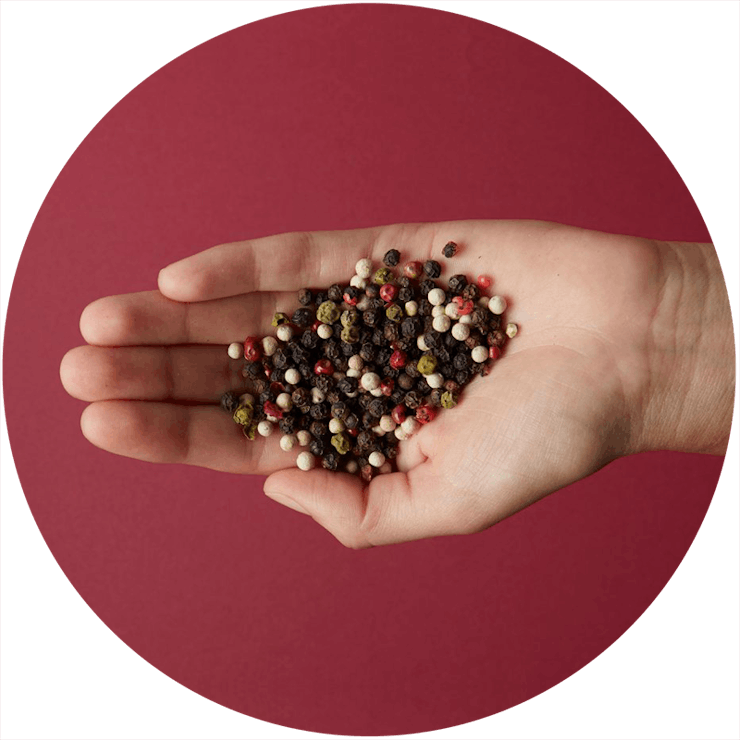Caryophyllene is a terpene found in cannabis, as well as in many other plants such as cloves and black pepper. Sometimes referred to as beta-caryophyllene or BCP, this terpene is known for its pungent peppery and earthy aroma and flavor. Some studies suggest caryophyllene may help reduce pain, anxiety, depression, and substance addiction. In addition, it’s been shown to be an antioxidant, anti-viral, and anti-inflammatory agent, and some studies even suggest it could increase lifespan by reducing gene stress.
“Can you taste the caryophyllene in this black pepper?”
“Caryophyllene really helps with my inflammation.”
What is caryophyllene?
Caryophyllene is a terpene found in cannabis, as well as in many other plants such as hops, cinnamon, basil, oregano, cloves, and black pepper. Sometimes referred to as beta-caryophyllene or BCP, this terpene is known for its pungent peppery and earthy aroma and flavor. In addition, caryophyllene is unique among terpenes for its ability to bind to the cannabinoid receptor CB2. Like some cannabinoids, this allows it to trigger health benefits associated with the CB2 receptor, such as reducing inflammation.
What is caryophyllene used for?
Caryophyllene is sometimes used as a flavoring agent in food, given its peppery taste. It is also found in some detergents and topical skin products.
Some also use caryophyllene for medicinal reasons, either as a supplement or as part of their cannabis. While human studies on this are scarce, studies on rodents have found caryophyllene may have pain-relieving properties, reduce anxiety and depression, and could help with treating addiction. In addition, it’s been shown to be an antioxidant, anti-viral, and anti-inflammatory agent, and some studies even suggest it could increase lifespan by reducing gene stress.
How do you use caryophyllene?
To use caryophyllene as part of your wellness routine, you can find a variety of caryophyllene supplements and try incorporating it into your diet. You can also add more foods and spices to your diet that are naturally high in caryophyllene, such as black pepper, hops, cloves, cinnamon, and rosemary. In addition, if you’d like to breathe in some caryophyllene, try using an oil diffuser with caryophyllene-rich essential oils, such as clove or cinnamon oil.
If you’d like to add more caryophyllene into your cannabis regimen, look for strains and products with lab results that show high levels of the terpene. Luckily, this terpene is very common in cannabis. If you don’t have access to terpene data, look for strains of cannabis that are naturally higher in caryophyllene such as GSC, Gelato, Bubba Kush, Chemdog, Master Kush, Candyland or Sour Diesel.
